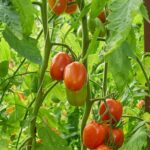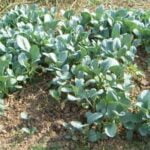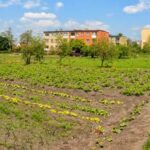If you’ve ever wondered, “Is Natria safe for vegetable gardens?” then you’re in the right place. In this article, we’ll dive into what Natria is and explore its uses in vegetable gardens. We’ll also address any concerns about its safety and environmental impact, as well as provide tips for using it safely.
Natria is a widely-used product in vegetable gardening, known for its natural and organic composition. Many gardeners turn to Natria as a solution for pest control and to promote healthy plant growth. Understanding the benefits of Natria and how to use it effectively is essential for any vegetable gardener looking to enhance their garden’s health and productivity.
In this article, we’ll explore the composition of Natria, its potential benefits for vegetable gardens, and how to use it safely. Additionally, we’ll compare Natria with other similar garden products and share real-life experiences from vegetable gardeners who have used Natria. So if you’re curious about whether Natria is safe for your vegetable garden, keep reading to get all the information you need.
What Is Natria
Natria is a brand of gardening products that are designed to be used in vegetable gardens. The products are formulated to control pests, diseases, and weeds while being safe for use around people, pets, and wildlife. Natria contains natural ingredients such as plant oils and extracts that are effective in managing garden problems without the use of harsh chemicals. Some popular Natria products include insecticidal soap, neem oil, and slug & snail killer.
The composition of Natria products is carefully selected to provide effective pest and disease control without posing significant risks to the environment or human health. The use of natural ingredients means that these products break down more quickly in the environment compared to synthetic chemicals. Additionally, Natria products are formulated to have minimal impact on beneficial insects such as bees and other pollinators.
When choosing Natria products for your vegetable garden, it’s important to read the labels carefully and understand the specific composition of each product. This will help you make informed decisions about which Natria products are best suited for your garden’s needs while ensuring safety for your plants, yourself, and the environment.
- Plant oils and extracts
- Insecticidal soap
- Neem oil
- Slug & snail killer
Benefits of Natria in Vegetable Gardens
Natria, a popular product for vegetable gardeners, offers several benefits that can enhance the health and growth of vegetables. When used properly, Natria can be an effective tool in maintaining a thriving garden.
Organic Composition
One of the main benefits of using Natria in vegetable gardens is its organic composition. Unlike many traditional pesticides and herbicides, Natria is made from natural ingredients that are safe for both plants and the environment. This makes it an attractive option for gardeners who prioritize organic and eco-friendly practices.
Effective Pest Control
Natria’s formula has been proven to effectively control pests that can damage vegetable plants. Whether it’s destructive insects or fungal diseases, Natria can help protect your garden from potential threats. By keeping pests at bay, Natria allows vegetables to thrive without the constant threat of damage.
Promotes Healthy Growth
In addition to pest control, Natria also supports healthy growth in vegetable plants. Its composition promotes robust root development and overall plant vitality. With Natria, vegetable gardeners can expect stronger, more resilient plants that are better equipped to withstand environmental stressors.
Overall, the benefits of using Natria in vegetable gardens are numerous. From its organic composition to its ability to control pests and promote healthy growth, Natria has become a trusted ally for many gardeners seeking safe and effective solutions for their crops.
Concerns About Natria
Natria, a popular product used in vegetable gardens, has gained attention for its potential benefits as well as concerns about its safety and environmental impact. It is important for vegetable gardeners to be aware of these concerns and take necessary precautions when using Natria in their gardens.
Some potential safety and environmental issues associated with Natria include:
1. Toxicity to beneficial insects: Some gardeners have raised concerns about the potential harm Natria may cause to beneficial insects such as bees and ladybugs. While Natria is marketed as an environmentally friendly alternative, it is important for users to consider the potential impact on non-targeted insects.
2. Impact on soil health: There are also concerns about the long-term effects of Natria on soil health and microbial activity. Some users have reported negative effects on the soil after using Natria over an extended period of time.
3. Health risks for pets and children: Due to the active ingredients in Natria, there may be potential health risks for pets and children if they come into contact with treated plants or soil.
To address these concerns, vegetable gardeners can take several precautions when using Natria:
– Always read and follow the instructions on the product label carefully.
– Use protective gear such as gloves and face masks when handling and applying Natria.
– Avoid applying Natria during windy conditions to prevent drift onto unintended areas.
– Store the product out of reach of children and pets to prevent accidental ingestion or contact.
By being informed about the potential safety and environmental issues associated with Natria, vegetable gardeners can make conscious decisions about whether or not to use this product in their gardens. It is important to weigh the benefits against the risks before incorporating Natria into your gardening practices.
How to Use Natria Safely in Vegetable Gardens
Natria is a popular product used in vegetable gardens to protect plants from pests and diseases. However, like any garden product, it is important to use Natria safely to minimize risks and maximize its benefits. Here are some tips for using Natria safely in your vegetable garden:
1. Read and follow the instructions: Before using Natria, carefully read the product label and follow the instructions for application. Pay attention to the recommended dosage, application frequency, and safety precautions. Using more than the recommended amount can be harmful to your plants and the environment.
2. Wear protective gear: When applying Natria, it is important to wear protective gear such as gloves, long-sleeved clothing, and a face mask to avoid skin contact and inhalation of the product. This will help prevent any potential irritation or allergic reactions.
3. Use during optimal conditions: It is best to apply Natria during calm weather conditions with no wind to prevent drifting of the product onto unintended areas. Additionally, try to avoid applying Natria during periods of high temperatures or when rain is expected, as this can affect its effectiveness.
By following these tips, you can ensure that you are using Natria safely in your vegetable garden while also maximizing its benefits in protecting your plants from pests and diseases. Remember that using any garden product requires careful consideration and adherence to safety guidelines for a successful gardening experience.
Natria vs Other Garden Products
Natria: Natural and Non-Toxic Alternatives
Natria is a line of natural and non-toxic gardening products designed to control pests and diseases without the use of synthetic chemicals. Made from essential oils and plant-based ingredients, Natria offers a safer alternative for those looking to minimize their exposure to harmful substances in the garden. Its active ingredients, such as neem oil, sulfur, and pyrethrin, work effectively while posing less risk to people, pets, and the environment compared to traditional chemical pesticides and fungicides.
Comparison With Synthetic Chemicals
When comparing Natria with synthetic chemical garden products, the primary difference lies in their composition. Synthetic chemicals like organophosphates, carbamates, and pyrethroids have been linked to health concerns for both humans and wildlife. Their long-lasting effects on the environment have also raised alarms about polluting water sources and harming beneficial insects. On the other hand, Natria’s natural ingredients break down quickly in the environment without leaving harmful residues.
Effectiveness in Garden Maintenance
In terms of effectiveness, Natria has proven itself capable of controlling common garden pests such as aphids, mites, whiteflies, and caterpillars while also combating fungal diseases like powdery mildew and black spot. Although some gardeners may argue that synthetic chemicals deliver quicker results, Natria’s consistent use has shown promising outcomes in managing pest infestations while supporting overall plant health without compromising safety.
User Experiences
Natria has gained popularity among vegetable gardeners for its natural and organic composition. Many users have reported positive experiences with this product, citing its effectiveness in controlling pests and promoting the health of their plants. One user, Sarah Johnson, shared her experience of using Natria to combat aphids on her pepper plants. She found that the product effectively eliminated the pests without causing any harm to the peppers or the surrounding environment.
Another user, Michael Smith, praised Natria for its safety around children and pets. He explained that because Natria is made from natural ingredients, he felt more comfortable using it in his vegetable garden where his children often play. The absence of harsh chemicals also reassured him that it would not pose a risk to his pets if they were to come into contact with treated plants.
In addition to pest control, users have also highlighted Natria’s ability to promote overall plant growth and fruit production. Maria Chavez revealed that since incorporating Natria into her gardening routine, she has noticed an increase in the yield of her vegetable crops. She attributes this improvement to the balanced composition of Natria, which provides essential nutrients while keeping harmful pests at bay.
| User | Experience |
|---|---|
| Sarah Johnson | Effective in controlling aphids on pepper plants without harming the crop or environment. |
| Michael Smith | Natria’s safety around children and pets; no harsh chemicals present. |
| Maria Chavez | Noticed increased yield in vegetable crops after using Natria; attributes improved growth to balanced composition of the product. |
Conclusion
In conclusion, the safety of Natria for vegetable gardens ultimately depends on how it is used. While Natria can provide effective pest control and support the health of your vegetables, there are potential concerns regarding its impact on beneficial insects and the environment. However, by following proper usage instructions and taking precautions to minimize risks, such as avoiding over-application and using protective gear when necessary, gardeners can use Natria safely in their vegetable gardens.
It is important for users to make an informed decision by considering the potential benefits and risks of using Natria in their vegetable gardens. While some gardeners have reported positive experiences with Natria in terms of pest control and overall plant health, others have expressed concerns about its impact on non-target insects and wildlife. Therefore, it is advisable for users to carefully weigh these factors before deciding whether to incorporate Natria into their gardening practices.
In the end, the verdict on whether Natria is safe for vegetable gardens is not definitive – it depends on individual circumstances and preferences. For those who choose to use Natria, it is recommended to closely follow the usage guidelines provided by the manufacturer and consider alternative products or methods that may offer similar benefits with fewer potential risks. Ultimately, maintaining a healthy and thriving vegetable garden requires careful consideration of all factors involved in pest control and plant care.
Frequently Asked Questions
Does Natria Kill Roots?
Natria is a brand of herbicide that is designed to control unwanted plants by targeting their leaves. While it may affect the roots of the targeted plants indirectly, it is not specifically formulated to “kill roots” in the same way that other root-targeting herbicides do.
Is Natria Bee Safe?
Natria has been designed to be less harmful to bees compared to traditional herbicides. However, it’s important to still exercise caution when using any type of pesticide or herbicide in areas where bees are present. It’s best to apply Natria during times when bees and other pollinators are not active to minimize any potential impact on them.
Is Natria Safe Around Pets?
Natria products are generally considered safe around pets when used according to the instructions on the label. However, as with any chemical product, it’s important to take precautions to protect pets from potential exposure.
This can include keeping pets off treated areas until the product has dried completely and ensuring that they do not ingest or come into direct contact with the product during application.

If you’re looking to get into vegetable gardening, or are just looking for some tips on how to make your current garden better, then you’ve come to the right place! My name is Ethel and I have been gardening for years. In this blog, I’m going to share with you some of my best tips on how to create a successful vegetable garden.





